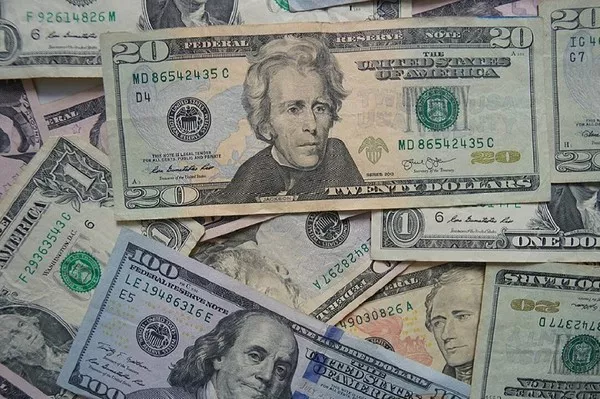The United States Dollar (USD) has long been regarded as the world’s strongest currency. Its supremacy in global financial markets is a testament to several key factors that underpin its strength. In this article, we explore why the USD continues to maintain its status as the dominant and most robust currency on the international stage.
1. Economic Size and Stability
The sheer size and stability of the U.S. economy are pivotal reasons behind the USD’s strength. The United States boasts the largest economy globally, accounting for a substantial portion of global GDP. This economic behemoth provides a strong foundation for the USD’s strength. The stability and predictability of the U.S. economy attract investors and central banks worldwide, who seek a safe haven for their reserves and investments.
2. Reserve Currency Status
The USD enjoys a unique position as the world’s primary reserve currency. Central banks and governments around the globe hold significant portions of their foreign exchange reserves in USD. This preference for the USD is rooted in historical events such as the Bretton Woods Agreement of 1944, which established the USD as the world’s primary reserve currency. This status as a reserve currency creates a perpetual demand for USD and bolsters its strength.
3. Liquidity and Accessibility
The USD is renowned for its liquidity, making it highly attractive to international investors and traders. It is widely accepted in international trade, finance, and investment, contributing to its unparalleled liquidity. Moreover, the accessibility of the U.S. financial system to foreign investors fosters trust in the USD. The ease with which investors worldwide can trade and invest in U.S. assets, including stocks, bonds, and real estate, further solidifies the currency’s appeal.
4. Political Stability
Political stability is a crucial factor in currency strength, and the United States is known for its stable political environment. The country’s strong democratic institutions, rule of law, and consistent governance provide a sense of security for investors and traders. Political turmoil and uncertainty in other regions often lead to a flight to safety, with investors seeking refuge in the USD.
5. Deep and Liquid Capital Markets
The United States boasts deep and liquid capital markets, including the U.S. Treasury market, which is the largest and most liquid government bond market globally. These markets attract global investors looking for diverse investment opportunities. The depth and liquidity of U.S. financial markets allow investors to trade large volumes of assets without significantly impacting prices, further enhancing the USD’s appeal.
6. Petrodollar System
The USD’s strength is closely tied to the global energy trade. Since the 1970s, most oil transactions have been denominated in USD, creating a substantial demand for the currency. This arrangement, known as the petrodollar system, solidifies the USD’s position as the dominant global currency. Countries around the world must hold USD reserves to facilitate energy trade, further bolstering the currency’s strength.
7. Geopolitical Influence
Geopolitical factors play a significant role in the strength of a currency, and the USD is no exception. The United States’ position as a global superpower and its involvement in international affairs contribute to the trust and confidence in the USD. The country’s leadership in global institutions such as the United Nations and the International Monetary Fund (IMF) reinforces the USD’s role as a dominant currency.
8. Network Effects
The USD benefits from network effects. As more countries and institutions adopt the currency for international trade and as a reserve asset, it becomes increasingly advantageous for others to do the same. The widespread adoption of the USD creates a self-reinforcing cycle that further cements its position as the world’s strongest currency.
Challenges to USD Dominance
While the USD’s dominance remains unchallenged, it is not immune to potential threats. Emerging digital currencies, such as cryptocurrencies, pose a novel challenge to traditional currencies. Cryptocurrencies like Bitcoin offer decentralization, security, and borderless transactions, challenging the conventional financial system.
Additionally, some countries express a desire to reduce their reliance on the USD in international trade, exploring alternatives like the Euro or the Chinese Yuan. However, these efforts face significant obstacles, including the need to build trust and liquidity in alternative currencies.
Conclusion
The United States Dollar’s status as the world’s strongest currency is a result of a complex interplay of economic, financial, geopolitical, and historical factors. Its size, stability, liquidity, and political influence, coupled with its role as a reserve currency and dominance in global trade, solidify its position at the pinnacle of the currency hierarchy. While challenges exist, the USD’s strength remains unrivaled, making it a linchpin of the global financial system.


